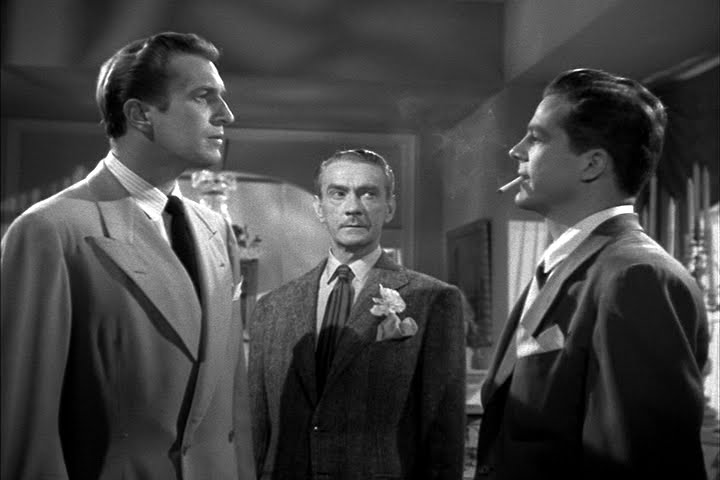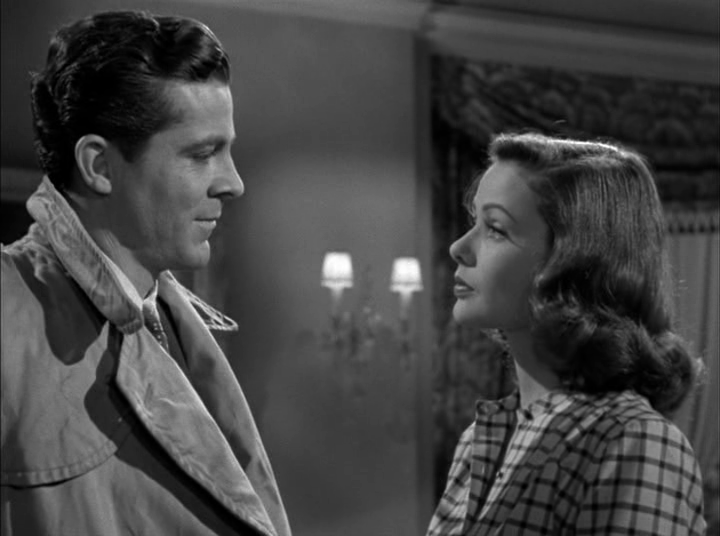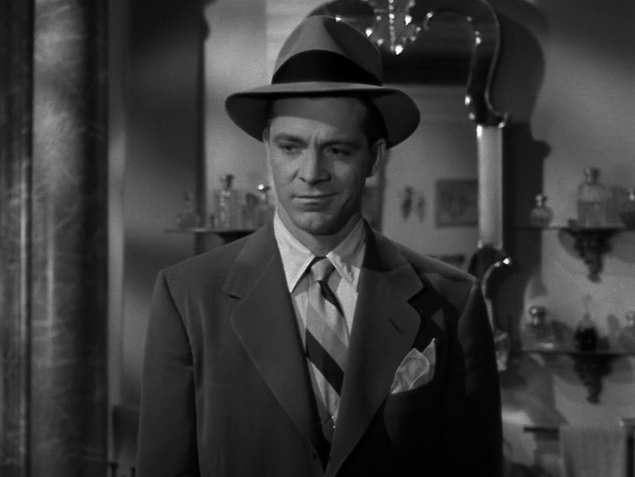“I shall never forget the weekend that Laura died…”. It’s one of the most interesting opening lines in film history. Spoken by Clifton Webb, the line sets the film’s tone. The 1944 movie is a fascinating study of gender. It not only presents a different take on the the femme fatale, but an unconventional image of masculinity.
Laura presents diverse male characters, especially Waldo Lydecker (Clifton Webb) and Detective Mark McPherson (Dana Andrews). Laura fits inside the film noir movement which ran from The Maltese Falcon in 1940 through Kiss Me Deadly in 1955. Of the men, only Andrews’ Mark McPherson is the “hardboiled” leading man, typified by Humphrey Bogart’s characters in movies like The Maltese Falcon and The Big Sleep.

In his book More Than The Night: Film Noir and It’s Context, James Narmore writes about Lydecker, “He is depicted as a… contrast to the… tough guy who is the hero of the narrative… He is a more complex and and significant presence than the equally closeted homosexuals in the average Hollywood comedy”.
Naremore mentions Dana Andrews “…tough guy”. Yet, even McPherson is played through a lens of wounded masculinity. McPherson has a history, which Lydecker immediately mentions, “…Mark McPherson the siege of Babylon, Long Island. The gangster with the machine gun. Killed three policemen. I told the story over the air and wrote a column about it. Are you the one with the leg full of lead, the man who walked right in and got him?”. Dana Andrews subtly injects a fragility into Mark McPherson. While he’s Laura‘s hardboiled detective, his flaws emerge as the story progresses. He’s a valiant and stoic police officer. However, as his fixation with Laura’s picture grows, there’s something he isn’t saying. Could it be anger at himself for not being able to protect her? As it’s unstated in the story, the answers can be wide ranging.

Dana Andrews work with this wounded masculinity further in The Best Years of Our Lives. In the 1946 film, Andrews plays returning WWII veteran Fred Derry. The movie follows three returning veterans trying to adjust to civilian life. The narrative shows Derry’s problems with shell-shock/PTSD, as well as how it affects his relationship with Peggy (Teresa Wright). Looking at both these movies, this wounded masculinity is an important part of Dana Andrews’ post-war star persona.
Gender relations changed in the years following World War II. As the war ended, and men returned from the front, culture at home had shifted. During the war, women had no choice but to fill the jobs left open by the soldiers. Thus, when the men returned the women were expected to return home. This didn’t sit well with everyone. This slow shift in culture is evident in the cinema of the era. The hardboiled, but often wounded male hero finds himself butting heads with the independent femmes fatales.

The title character of Laura (Gene Tierney) stands out, especially during this post-war period. While typically labeled a femme fatale, Laura Hunt is different from the other memorable characters from the same time: like Phyllis Dietrichson, and Cora Smith. Waldo’s flashback’s tell Laura’s story. At the beginning, she’s a young and hungry career girl. She first meets Lydecker as she represents her ad agency to him. It is through him that Laura’s able to grow professionally. As the story advances, she develops at her company, becoming a successful career woman.
However, Laura’s biggest crimes stems from her love life. She quickly looses interest in Waldo, and becomes engaged to Shelby (Vincent Price). In contrast, the characters mentioned above plot murders and stage crimes to get what they want. Laura does none of this. In fact, when looking at Laura, it’s hard to call her an active player in the story. She’s largely powerless, merely able to react to the men around her. Though, it is important that she does not fall into the usually evil femme fatale.
Laura opened in January of 1945, and stands as a classic example of film noir. Coming in the month’s directly before the end of World War II, the film is an example of the changing gender relations of the period. Laura shows not only an unique view of masculinity, but it presents an interesting femme fatale.

Episode 42: Sorry to Bother Dames – Citizen Dame
[…] Kim’s Feminist Friday saw her tackle the 1944 noir Laura […]